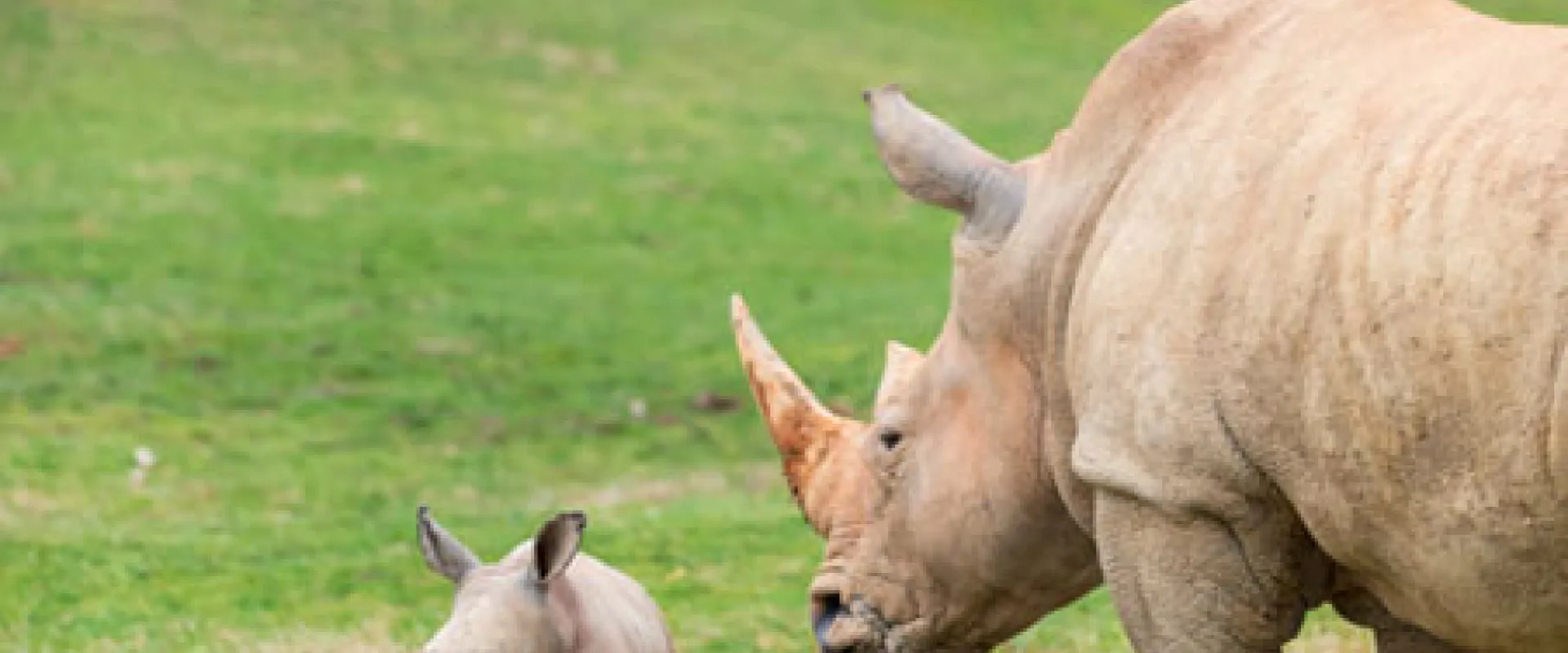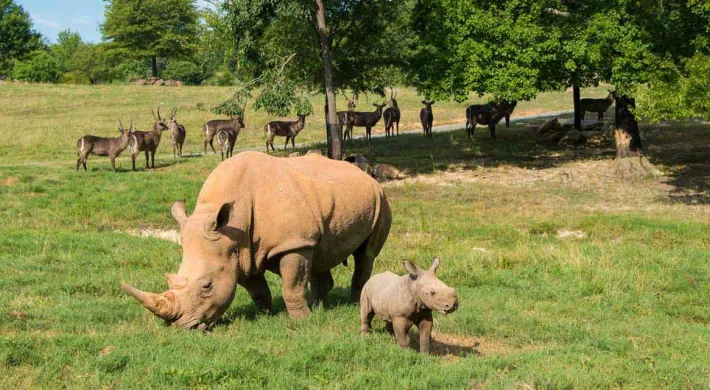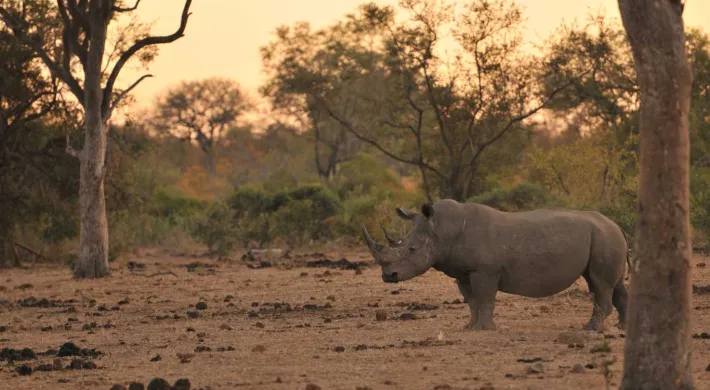Written by The Grasslands Keepers at the North Carolina Zoo
Last year, zookeepers went to see a documentary called Kifaru about the last male northern white rhino, named Sudan, and the rangers (keepers) in Kenya who helped care for him. The documentary was part of a film festival in Raleigh and supported by the North Carolina Zoo. We were fortunate enough to get tickets and thrilled to learn that two of the rangers from the film, Joseph (Jojo) Wachira and James Mwenda of Ol Pejeta Conservancy, were touring with the film. As fate had it, we even have an opportunity to meet them after the viewing.
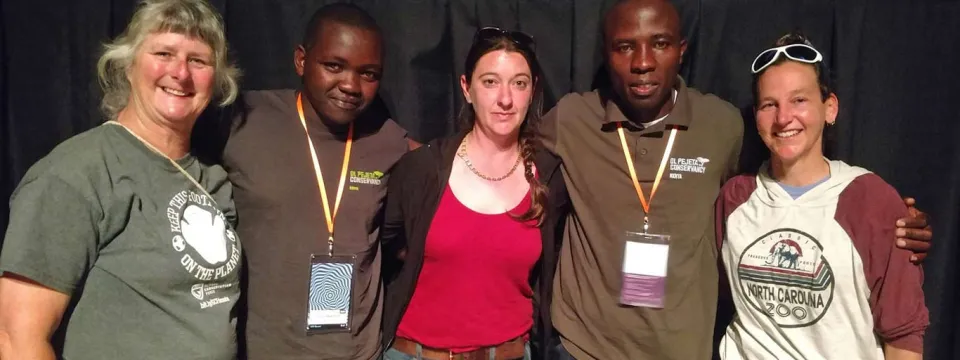
Photo above: North Carolina Zoo Keepers meet Ol Pejeta Conservancy Rangers Jojo Wachira and James Mwenda: Wachira and Mwenda were the caretakers for the last male northern white rhino, Sudan.
The impact of the film was unexpected; there was not a dry eye in the house. The passion the keepers have for their animals mimicked that of our own passion- times ten. Just like our daily routine, you see these keepers feeding their rhinos, talking to their rhinos, giving the rhinos mud baths, and worrying over their health and happiness. Yet these rangers work and live on the park for weeks at a time, away from their families while we return to family and creature comforts every evening.
The question and answer time after the film was incredibly interesting. We could have listened for hours. They were like rock stars in our minds but had no idea how closely the rest of the rhino world was watching the story of Sudan unfold. They were humble, easy to talk to, and so passionate about telling the world their story, the northern white's story, this sad story of extinction right in front of our eyes. We went to work the next day with a little more meaning behind our brooms.
A few weeks later, Ol Pejeta Ranger James Mwenda came to the North Carolina Zoo to visit. All the Zoo’s Grasslands keepers were enthralled and were so grateful to have him to ourselves to talk, even if just for the morning (the Zoo’s Grassland keepers care for rhinos and hoof stock on a 40-acre natural habitat). Again, we had him speaking about how rhino poaching is a very real thing, and how man's impact and greed drove the Northern Whites to extinction. Seeing and hearing someone who actually works on the front line every day and fights to protect the wild treasures of Africa was simply amazing. Humbling. Impactful to the core. We and our animals here in the United States have it good in our protected zoos and preserves.
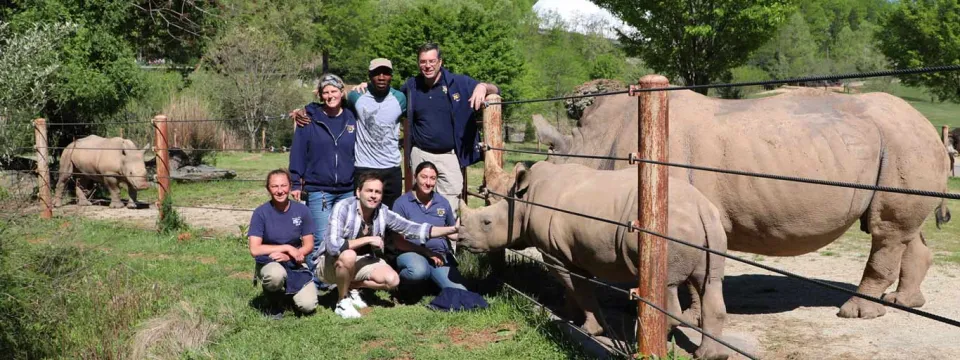
Photo above: Ranger James Mwenda visits the North Carolina Zoo keepers in 2019 during a tour of the documentary Kifaru.
Fast forward to 2020 and the birth of rhino Linda's newest calf.
The Zoo put together an online naming contest so all of our visitors could feel connected. Grassland keepers were each asked to pick a name entry for voters to choose from that had meaning. Thrilled to pieces to help maybe contribute, I picked Jojo after Joseph Wachira, his work to educate the world about rhinos and extinction, and his deep love for an orphaned rhino calf in the film. Today, I am even more thrilled knowing that a rhino's legacy and his keeper in Kenya will live on in the story of how our Jojo got her name. It has a meaning, history, and it evokes those faces that help us remember to keep fighting for our rhinos here and abroad. The North Carolina Zoo’s staff work on projects in several countries in Southern Africa to protect wild rhinos from poaching and save the species from extinction.
Choosing the name was easy. The fight against rhino poaching and the plight of all rhinos is the real challenge. While it seems daunting, we know anything is possible through love and care, and a never give up attitude.
